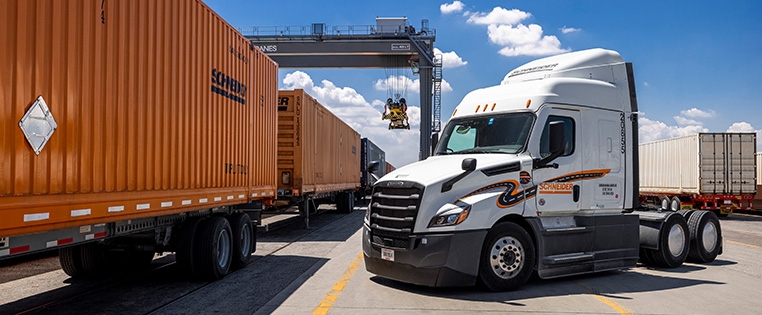
Intermodal truck driving jobs
What is intermodal trucking?
Intermodal driving consists of using two or more modes of transportation to haul freight from one destination to another. At Schneider, this involves using company-owned chassis to drop off and pick up freight containers at various rail yards across the country.
Solo
All shorter haul
All intermodal opportunities are solo driving jobs because the long-distance work typically tackled by teams is handled by trains. You’ll get plenty of miles and enjoy a healthy mix of urban and suburban/rural driving while getting the home time that best suits your work-life balance needs, whether that’s daily, multiple times per week or weekly.
Solo intermodal driver pay:
- Top drivers earn an average of $100,000 per year.
- Drivers average $1,490 - $1,820 per week.
Tanker
An industry first
Schneider was the first in the industry to create a tanker trailer that also fits on a train. If you’re looking for a more hands-on and lucrative driving job with reliable daily or weekly home time, an intermodal tanker job may be the perfect fit for you.
Tanker intermodal pay:
- Top drivers earn an average of $85,000 per year.
- Drivers average $1,190 - $1,460 per week.
Regional
Great work/life balance
Regional drivers haul freight within a specific area of the country, and for intermodal drivers, that means delivering to and from customers and rail yards throughout the region. Regional intermodal drivers typically get home weekly or multiple times during the week.
Regional intermodal pay:
- Top drivers earn an average of $100,000 per year.
- Drivers average $1,490 - $1,820 per week.
Local
Unbeatable home time
Local intermodal truck drivers stay within a few hundred miles of home and get home every day. These jobs are located within major rail hub markets, with some even offering cross-town options that’ll keep you within the city. Most of these jobs require previous driving experience, which makes for a great career progression opportunity for drivers.
Local intermodal driver pay:
- Top drivers earn an average of $100,000 per year.
- Drivers average $1,160 - $1,420 per week.
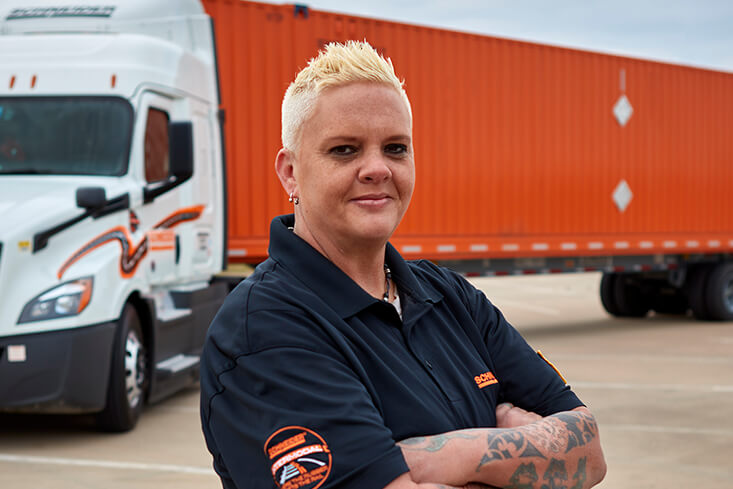
Solo
All shorter haul
All intermodal opportunities are solo driving jobs because the long-distance work typically tackled by teams is handled by trains. You’ll get plenty of miles and enjoy a healthy mix of urban and suburban/rural driving while getting the home time that best suits your work-life balance needs, whether that’s daily, multiple times per week or weekly.
Solo intermodal driver pay:
- Top drivers earn an average of $100,000 per year.
- Drivers average $1,490 - $1,820 per week.
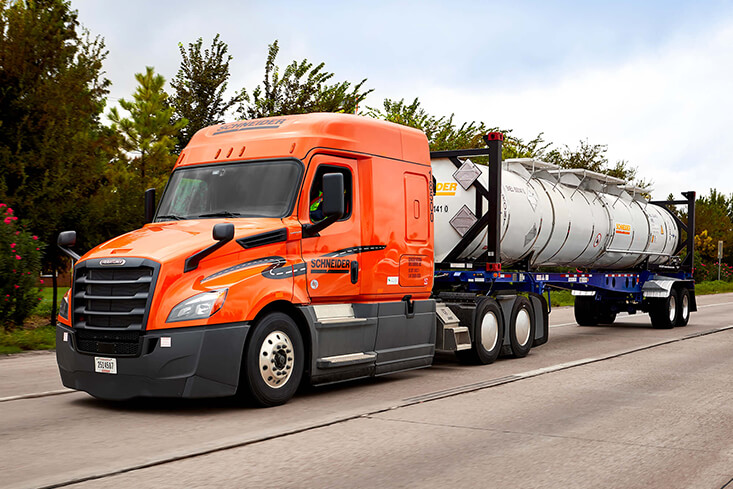
Tanker
An industry first
Schneider was the first in the industry to create a tanker trailer that also fits on a train. If you’re looking for a more hands-on and lucrative driving job with reliable daily or weekly home time, an intermodal tanker job may be the perfect fit for you.
Tanker intermodal pay:
- Top drivers earn an average of $85,000 per year.
- Drivers average $1,190 - $1,460 per week.
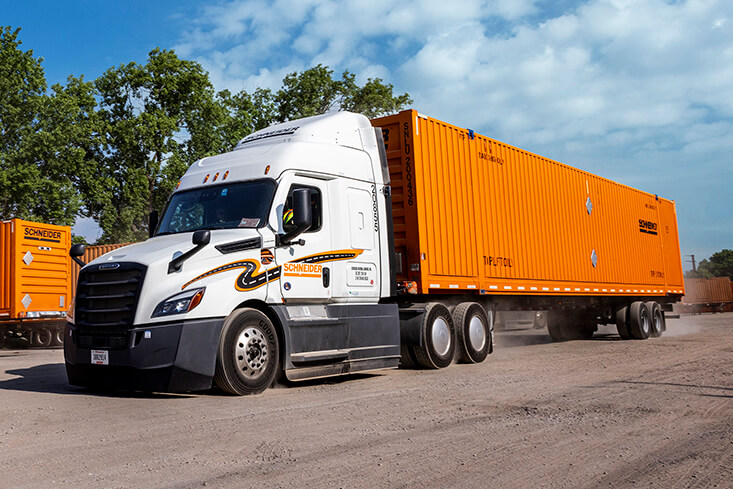
Regional
Great work/life balance
Regional drivers haul freight within a specific area of the country, and for intermodal drivers, that means delivering to and from customers and rail yards throughout the region. Regional intermodal drivers typically get home weekly or multiple times during the week.
Regional intermodal pay:
- Top drivers earn an average of $100,000 per year.
- Drivers average $1,490 - $1,820 per week.
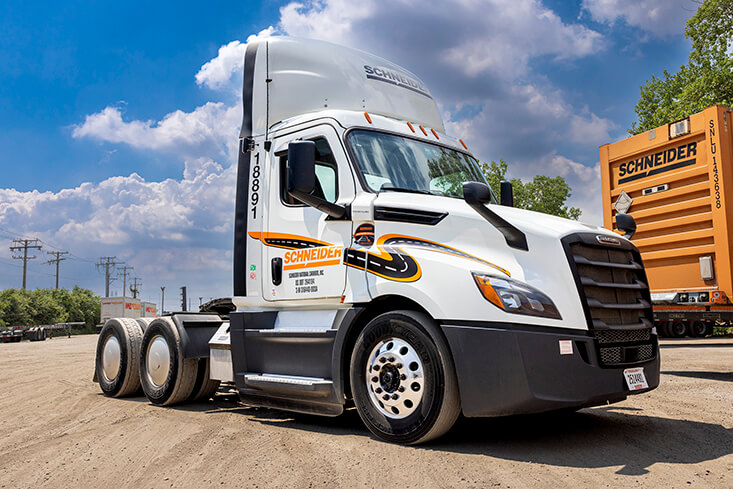
Local
Unbeatable home time
Local intermodal truck drivers stay within a few hundred miles of home and get home every day. These jobs are located within major rail hub markets, with some even offering cross-town options that’ll keep you within the city. Most of these jobs require previous driving experience, which makes for a great career progression opportunity for drivers.
Local intermodal driver pay:
- Top drivers earn an average of $100,000 per year.
- Drivers average $1,160 - $1,420 per week.
See what makes intermodal special
Why choose intermodal driving?
More home time
The train handles the long distances, so you get the shorter.
Drop-and-hook freight
Most freight is drop-and-hook. That means you’ll spend more time moving and less time waiting at loading docks.
Newer equipment
Schneider owns its tractors, containers and chassis, so you won’t have to worry about being set back by unreliable equipment.
“My favorite thing about intermodal is all the different people I get to work with. The support system for drivers is incredible.”




